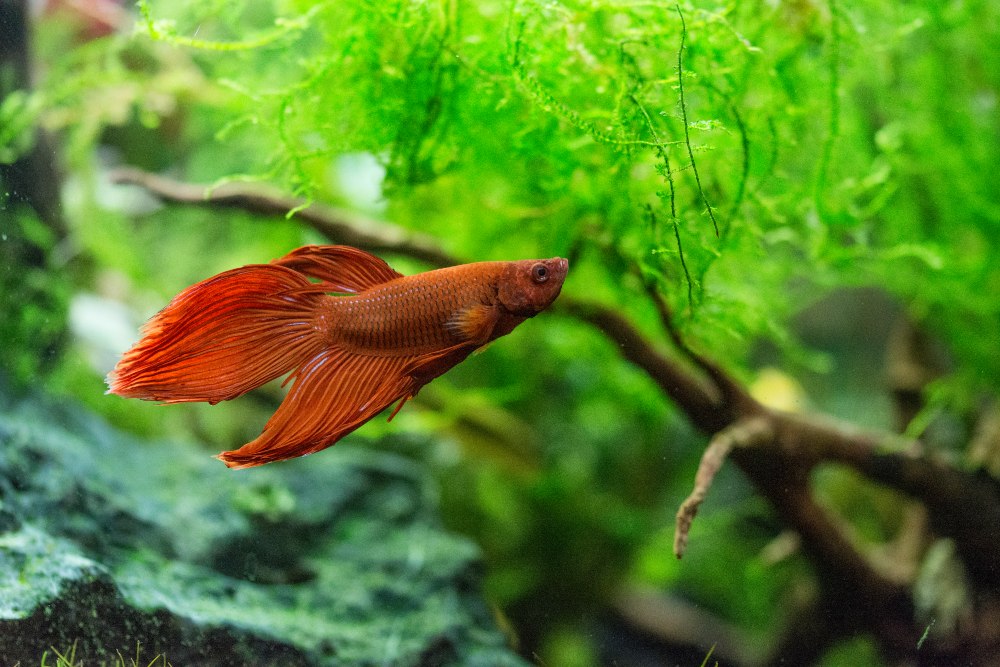Betta fish keepers already know that bettas have a unique personality. One of their common traits is that betta fish need lots of hiding places in their aquarium.
While it’s completely normal behavior to hide at some point, you should worry when they refuse to come out of the hiding spots for days.
But how do you fix it?
One of the reasons for them hiding could be fear or insecurity if there are other fish in the tank. Another reason for betta fish hiding could be stress or illness.
In this article, you’ll learn about all the possible reasons for such behavior of your betta fish, along with possible solutions.
Let’s get started.
Potential Causes Of Your Betta Fish Hiding
Some reasons why your betta fish remain hidden most of the time are:
1. You Have Recently Got Your Betta Fish
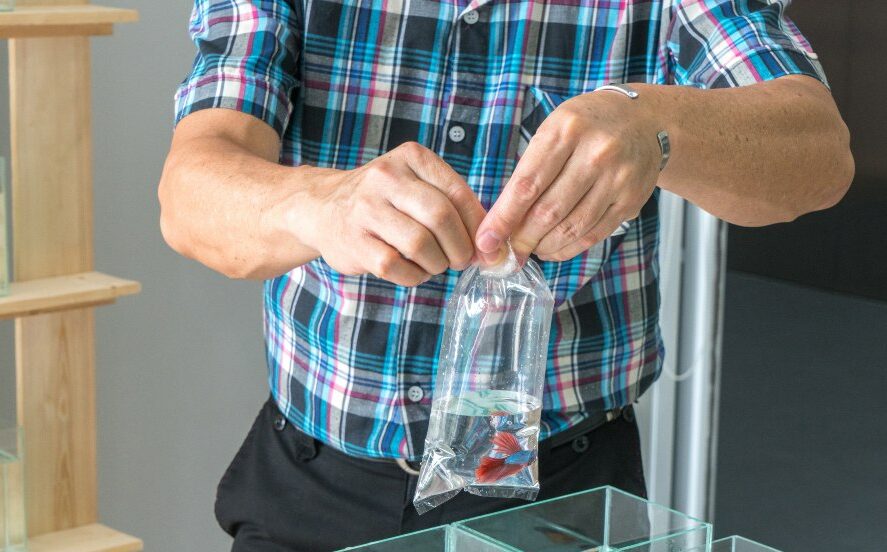
If you have recently got your betta fish or the Siamese fighting fish, it’s normal for them to stay hidden. It may feel nervous in the new environment and would take some time to adapt. Usually, betta fish need one or two weeks to settle in the new tank, explore it, and establish their territory.
Therefore, you shouldn’t be worried about your betta hiding when it’s new to the aquarium.
2. Poor Water Quality & Incorrect Water Temperature
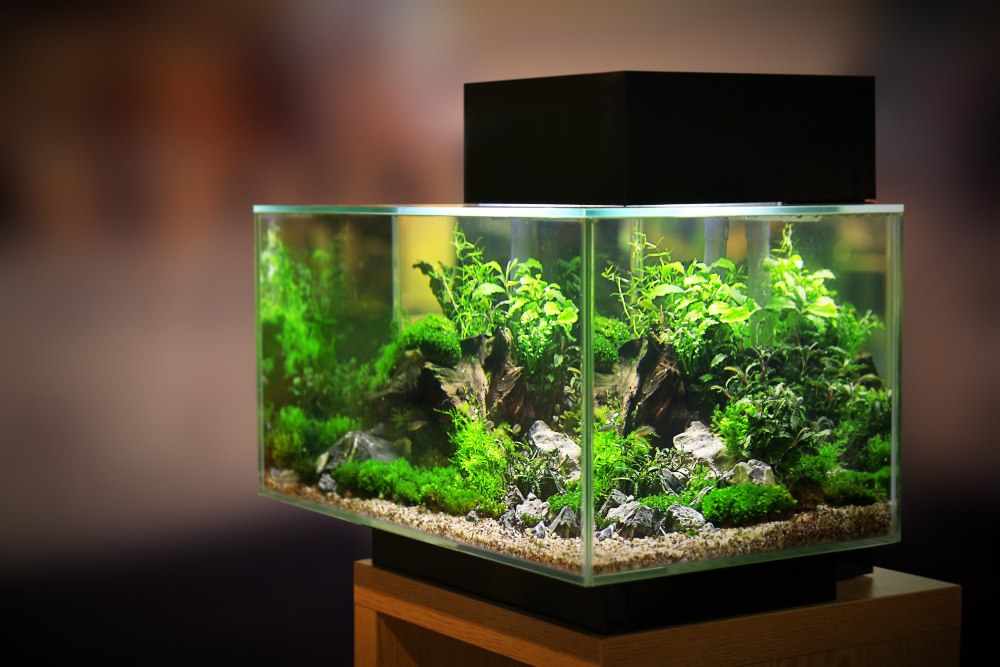
If you see your betta fish refusing to come out of the hiding spaces, it could be due to poor water quality. Check the water parameters immediately using a test kit.
You may already know that betta fish are quite sensitive to water parameters. Keeping them in waters with high ammonia and nitrate levels stresses them out and causes bacterial infection as well.
High ammonia and nitrite poisoning also cause chemical burns to their gills, making it difficult to breathe.
The betta fish will die if you keep it in such water for a long time. Therefore, check the tank’s water parameters using a testing kit. The ammonia & nitrate levels should be zero. If the levels are high, consider changing the tank water.
Consider keeping a better filtration system to prevent ammonia or nitration build-up in the future.
3. Strong Water Flow
Betta fish are native to the slow moving waters of Southeast Asia. Therefore, they are not used to strong currents. Moreover, they are also not good swimmers.
If the water movement in the betta’s aquarium is too strong, your pet fish will spend most of the time hiding in the aquarium caves.
The easiest way to stop this is to lower the water filter settings. But that’s not the right option for the long term because it’ll compromise the filter’s cleaning ability.
You must invest in an adjustable filter that keeps the water current stable without spoiling the water quality. Another trick you can apply is to install a redirect solution.
Using it, you can angle the water flow, which will no longer disturb your betta fish. Alternatively, add more pebbles, aquarium plants, and driftwood to slow down the water current.
4. Powerful Aquarium Lights
Bettas are tropical fish and are used to living in the dark, murky, or shady waters. Therefore, they don’t like too much light. The fish will try to hide if there is too much light in the aquarium.
You need to figure out if the tank light is too bright for betta fish. Try reducing the brightness using dense plants or changing the aquarium light.
If you want your betta to live a healthy and longer life, you must try to replicate its actual living environment. Also, try to keep the betta tank away from direct sunlight. Like humans, bettas too follow the day and night structure and prefer sleeping in the dark. Hence, turn off the aquarium light at night.
5. Injury Or Sickness
An injured betta will always try to take refuge by hiding behind the tank decorations. Sharp-edged objects and plastic plants often damage betta’s beautiful fins, causing fin rot, bacterial infection, etc.
Therefore, try to inspect if this is the reason your betta isn’t coming out of the hiding places. If you see any injuries, provide instant medical help.
If the injury remains untreated for long, it may prove fatal. A sick betta is also not very active and appears unusually lethargic, pale, and refuses to eat.
If you see any of these symptoms, consult a vet and proceed with the treatments accordingly.
6. Stressed Betta
Stress is another common reason for the betta fish hiding. Although bettas are not high-maintenance fish, they are very sensitive to living conditions.
There can be multiple reasons for the betta to feel stressed, such as tank water change, poor water quality, inappropriate water temperature, lack of tank substrates, tank mates, etc.
A stressed betta refuses to eat; again, it’s not good for their long-term health. I’m sure you want to see your pet fish thriving; hence, try to figure out what could be the reason for its stress to take immediate action.
7. Feeling Of Threat Or Insecurity
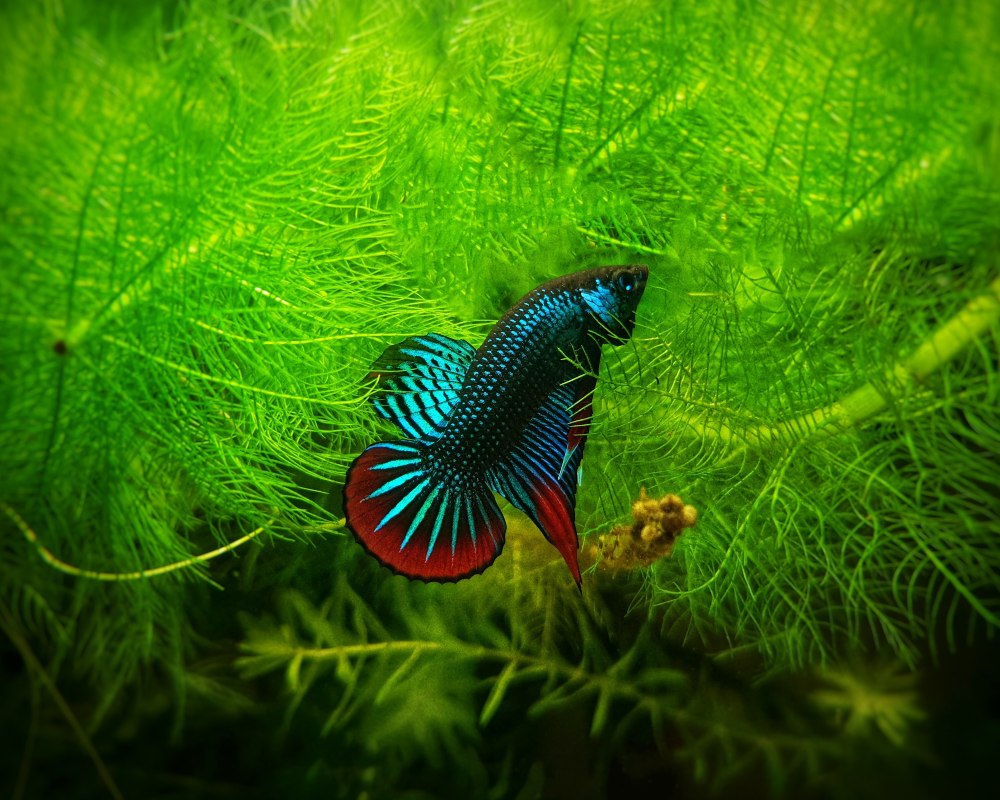
Betta fish don’t do well in a community tank. Bettas are very territorial, so they love to live alone. If you have kept your betta fish with other fish, there are chances it may feel stressed.
You’ll find your betta fish hiding behind aquarium objects if it’s stressed due to its new tank mates. Experienced aquarists also don’t advise keeping two male betta fish together as one will try to dominate the other to establish territory.
Even keeping a male and a female betta fish together isn’t recommended. The male fish will attack the female, ultimately leading to her death. Male bettas tend to be more aggressive than females; keeping them alone is best for their health.
If you still prefer to keep two fish together, use an aquarium divider. It’ll prevent the fish from fighting, and the betta won’t feel stressed as well.
8. Noise
Bettas prefer to hide when they feel disturbed by noise. If the noise persists, they will refuse to leave their hiding spot. So how can you fix it?
Don’t place the betta’s tank near the TV or radio or close to the laundry room or kitchen. As a new betta owner, you may not be aware of these simple details. If you have kept the fish tank closer to loud areas, shift it to a better place with less noise.
9. Betta Fish Hide After Water Change
It’s perfectly normal behavior for the betta fish to hide after a water change. They can easily sense when the tank setup changes, including water change.
The betta will take some time to acclimate, so they prefer hiding until they get used to it. However, you’re not supposed to change the entire water at change. If you do so, the sudden shock in the change of parameters will stress out the betta, leading to health issues.
10. The Betta Tank Is Too Small
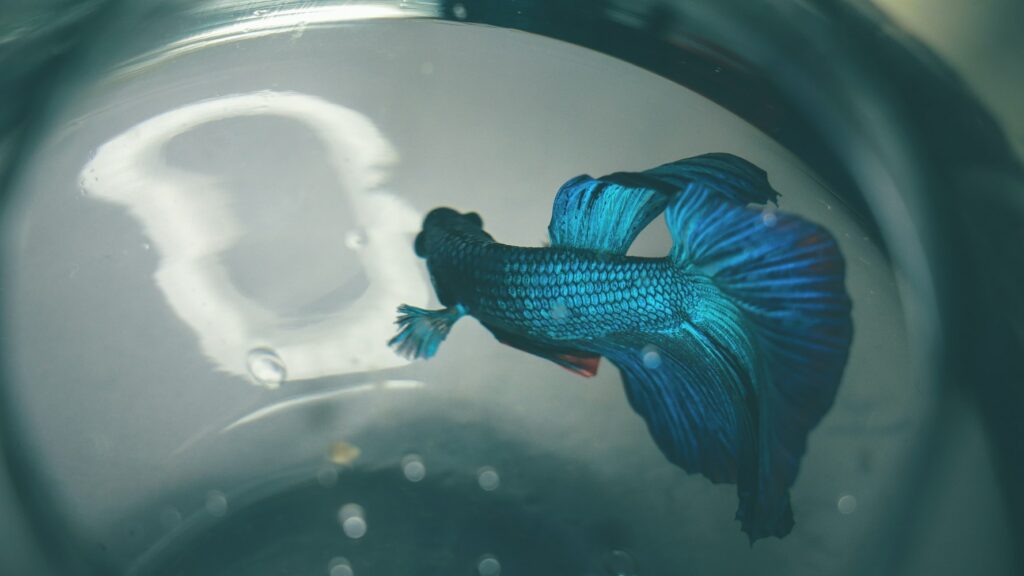
Betta owners should know that bettas need a large tank. As the wild bettas are used to living in tropical waters, they can’t adjust well in a small tank. Moreover, small tanks make them feel exposed; hence they try to hide behind the filter, floating plants, driftwood, and other spots.
Also, if you keep it in a bare tank with minimal aquarium decorations, the betta fish will prefer not to interact with you.
These are some of the common causes of your betta fish hiding. Bettas are very intelligent fish, so they quickly sense even a minor change in the tank setup.
Therefore, you must always try to keep the water parameters stable, don’t make any drastic changes in the aquarium decorations, and try not to keep the betta in a community tank.
The way to keep your betta fish happy and stress-free is to let it live in a large aquarium all by itself.
My Betta Fish Is Often Lying At The Bottom Of The Tank. Is It Normal?
If your betta fish is eating well and often dwells around the tank water, it’s normal for your fish to lay at the tank bottom. One of the reasons your betta fish is lying is because it is sleeping.
Yes, like us humans, bettas also have a sleeping pattern, and they need sleep as much as we do. Also, staying still is normal behavior for betta fish. They love to lay at the tank bottom and rest quite often.
But if the fish is avoiding food and appears dull, it could be due to stress or disease.
Conclusion
Hiding is pretty normal for betta fish. These tropical fish species tend to hide in their natural habitat to protect themselves from threats from bigger fish and other aquatic animals. They also like to rest in their hiding places and usually spend the rest of the day swimming in the tank.
But if your betta fish refuse to leave their hiding holes, avoid eating, or appear lethargic or pale, it could be due to one of the reasons I mentioned earlier. Hence, if you notice any strange behavior, take immediate action to save your pet fish from dying.
Frequently Asked Questions
A betta fish usually takes one or two weeks to adjust to a new environment. During this phase, the fish will spend most of the time hiding and gradually start exploring the surroundings and get used to the new tank.
If your betta fish is hiding behind the heater, it’s mostly due to the cold. Bettas are used to living in warm waters between 75 to 80 degrees Fahrenheit. Check the temperature and adjust it accordingly.
If the water flow is too strong inside the tank, then the betta will hide behind the filter. They can’t swim in fast-moving waters, so if the water current is too strong, reduce it by adjusting the filter settings.

